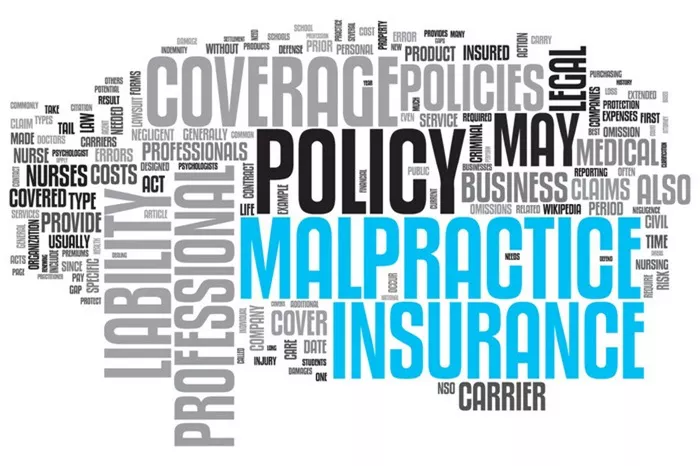Professional liability insurance is a crucial consideration for many professionals and businesses. It provides protection against claims of negligence, errors, or omissions that can arise during the course of delivering professional services. This article explores when professional liability insurance is necessary, delving into various scenarios and professions where this type of insurance is essential. We will examine the nature of professional liability insurance, its benefits, and the key factors that influence the need for coverage.
What is Professional Liability Insurance?
Professional liability insurance, also known as errors and omissions insurance, is designed to protect professionals from claims of negligence or mistakes made while providing their services. Unlike general liability insurance, which covers bodily injury or property damage, professional liability insurance focuses specifically on the risks associated with professional advice or services.
Who Needs Professional Liability Insurance?
Legal and Financial Professionals
Legal professionals, including lawyers and paralegals, face significant risks due to the nature of their work. Errors in legal advice, missed deadlines, or inadequate representation can lead to claims of negligence. Professional liability insurance for lawyers helps cover the costs of legal defense and any settlements or judgments.
Financial professionals, such as accountants, financial advisors, and tax preparers, also require professional liability insurance. Errors in financial advice, miscalculations, or failure to meet regulatory requirements can result in claims. This coverage helps protect against the financial impact of such claims.
Healthcare Providers
Healthcare providers, including doctors, nurses, and therapists, are frequently exposed to claims of medical malpractice. Professional liability insurance for healthcare professionals provides coverage for allegations of negligence, misdiagnosis, or treatment errors. Given the high stakes in healthcare, this insurance is essential for managing the financial risks associated with medical practice.
Consultants and Contractors
Consultants and contractors, regardless of their industry, often provide expert advice or services to clients. This creates a potential risk for claims if their recommendations or work lead to financial loss or other damages. Professional liability insurance for consultants and contractors safeguards against these risks, ensuring that they can continue to operate without facing debilitating financial consequences.
Architects and Engineers
Architects and engineers are responsible for the design and planning of various projects, and errors or omissions in their work can have significant consequences. Professional liability insurance for architects and engineers covers claims related to design flaws, project delays, or failures to meet specifications. This insurance is crucial for managing the potential legal and financial impacts of such claims.
When Should You Consider Professional Liability Insurance?
Starting a New Business
When starting a new business, especially one that involves providing professional services or advice, securing professional liability insurance should be a priority. Even if you have a solid business plan and experience, the risk of potential claims is always present. Obtaining this insurance from the outset helps mitigate risks and establishes credibility with clients.
Expanding Your Service Offerings
If your business is expanding its service offerings or entering new markets, it is important to review your professional liability insurance coverage. New services may introduce different risks, and your existing coverage may not adequately address these new exposures. Ensuring that your policy aligns with your expanded services helps protect against unforeseen claims.
Entering into Contracts or Agreements
When entering into contracts or agreements with clients, it is essential to assess the need for professional liability insurance. Many contracts require proof of insurance as a condition for doing business. Having adequate coverage in place not only meets contractual requirements but also provides financial protection in case of disputes or claims.
Renewing or Updating Policies
Regularly reviewing and updating your professional liability insurance policy is crucial to ensure that it remains relevant to your current business operations. Changes in the industry, evolving risks, or updates to your services may necessitate adjustments to your coverage. Regular reviews help maintain adequate protection and avoid coverage gaps.
See Also: What Is an Example of Liability Insurance?
Benefits of Professional Liability Insurance
Financial Protection
One of the primary benefits of professional liability insurance is financial protection against claims of negligence or errors. The costs associated with legal defense, settlements, or judgments can be substantial. Insurance coverage helps manage these financial risks, ensuring that you can continue your business operations without facing overwhelming expenses.
Enhanced Professional Credibility
Having professional liability insurance enhances your credibility and demonstrates a commitment to managing risks responsibly. Clients are more likely to trust and engage with professionals who have adequate insurance coverage, knowing that they are protected in case of any issues.
Peace of Mind
Professional liability insurance provides peace of mind, allowing you to focus on delivering high-quality services without constantly worrying about potential claims. Knowing that you have coverage in place helps you concentrate on your work, reducing stress and enhancing overall job satisfaction.
Compliance with Industry Standards
In many industries, having professional liability insurance is a standard requirement or best practice. Adhering to these industry standards not only protects your business but also aligns with professional norms and expectations. This compliance can be crucial for maintaining professional associations and licenses.
Conclusion
Professional liability insurance is an essential aspect of risk management for many professionals and businesses. Understanding when you need this coverage, the benefits it provides, and how to choose the right policy are key to protecting yourself and your business from potential claims. Whether you are starting a new business, expanding your services, or simply looking to ensure adequate protection, professional liability insurance offers peace of mind and financial security.
FAQs
1. What is the difference between personal and professional liability insurance?
General liability covers physical risks, such as bodily injuries and property damage. Professional liability insurance covers more abstract risks, such as errors and omissions in the services your business provides.
2. Is pi insurance compulsory?
Professional indemnity insurance is not a legal requirement – but professionals who work in certain sectors should still consider it one of their core business needs. This is because some industries are much more likely to suffer service-based disputes than others.
3. What happens if I don’t have professional indemnity insurance?
What this means is that if you don’t have professional indemnity insurance, the number of projects that you’re able to work on is a lot more limited. If you’re required to have professional indemnity insurance due to a contractual requirement, the contract will usually specify the minimum indemnity limit.
4. What is the difference between professional liability and indemnity?
The key difference between public liability and professional indemnity is that while public liability covers for risks of injury or damage, professional indemnity is focused on the work side of things, covering for professional errors and negligence.
5. Who needs to buy professional indemnity insurance?
PI insurance is important for businesses which provide professional advice. This includes but is not limited to accountants; psychologists; architects; consultants and many more. For some professions, it is even mandatory, with a central regulating body setting the requirements and limits.






















